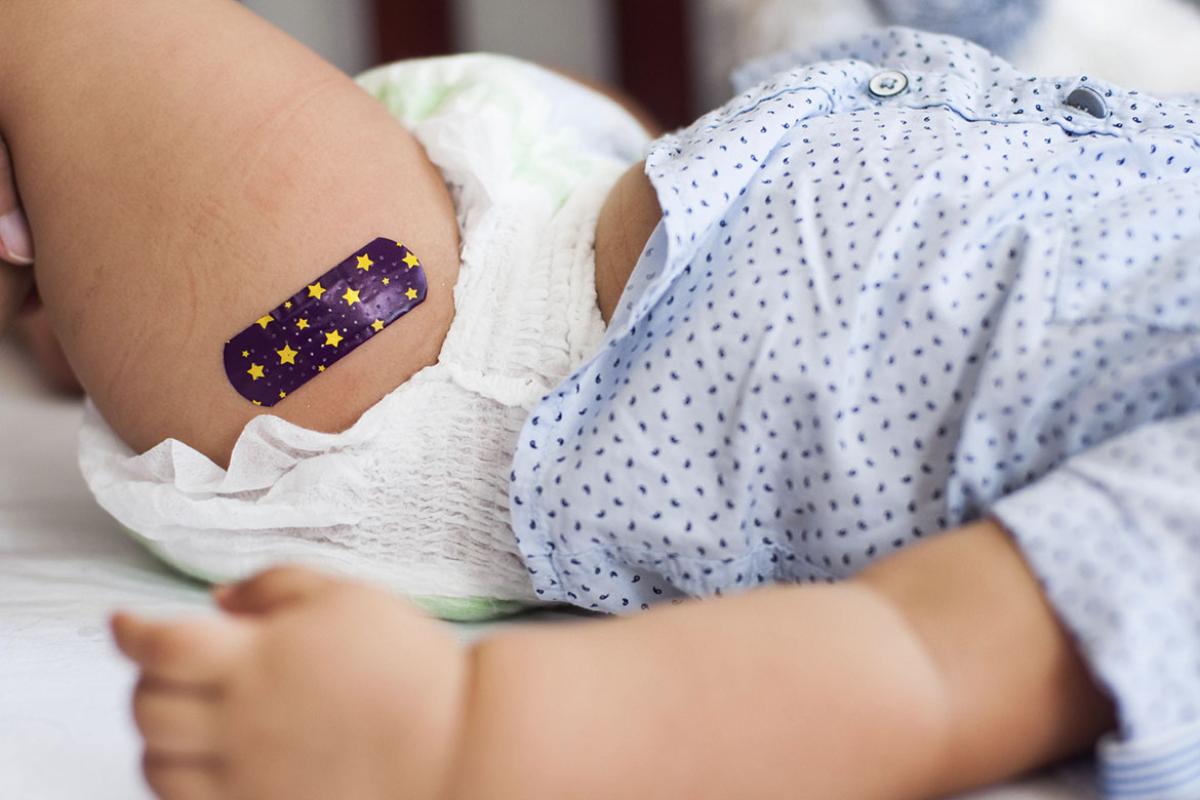
Contents
Reimagining Residency overview
Launched in June 2019, the goal of the Reimagining Residency grant program is to transform residency training to best address the workplace needs of our current and future health care system. It supports bold and innovative projects that provide a meaningful and safe transition from undergraduate medical education to graduate medical education, establish new curricular content and experiences to enhance readiness for practice and promote well-being in training.
More than 300 entities with oversight of graduate medical education (GME) in the United States contributed to proposals for projects that promote systemic change in GME. From those proposals, 11 projects were selected for funding. The Reimagining Residency grant teams join the Accelerating Change in Medical Education Consortium of 37 medical schools in their work to transform medical education across the continuum.
Accelerating Change in Medical Education
The Reimagining Residency program follows the success of the Accelerating Change in Medical Education initiative that has created a community of innovation aimed at creating the medical schools of the future.
The success of that initiative (involving $14.1 million in grants awarded to 37 medical schools and impacting 23,000 medical students, who will one day care for 40 million patients each year) prompted the AMA to apply its learnings to reimagine residency training.
Visit changemeded.org to learn more about the AMA’s Accelerating Change in Medical Education program and join the ChangeMedEd Facebook group to keep up to date on the work of the consortium and connect with influencers across academic medicine.
Reimagining Residency grant teams
Learn more about the Reimagining Residency grant teams and their projects that were selected for funding. These projects address the following areas in GME:
- Competency based medical education
- Transitions
- Learning environment
- Health systems science
- Workforce
Competency based medical education
Stanford University Emergency Medicine Residency Program and the Emergency Medicine Residency Program Evaluation and Assessment Consortium
Project title: Development of a Unified System of Assessment and Predictive Learning Analytics Utilizing Entrustable Professional Activities Across Emergency Medicine Residency Programs
Project description: The Reimagining Residency project with Stanford University and the Emergency Medicine Residency Program Evaluation and Assessment Consortium aims to actualize competency-based medical education across the continuum of emergency medicine training, including the transition to residency and the transition to practice.
Progress to date:
- In collaboration with a specialty-wide advisory board, developed tiered entrustable professional activities on which to base the cornerstone of a new ecosystem of assessment
- Initial steps to build out the remaining components of the specialty-wide program of assessment ranging from observable practice activities for direct observation both on and off service to multi-source feedback and resident-sensitive quality measures
- Initiated a partnership with the Society for Improving Medical Professional Learning (SIMPL) to develop the requisite technology to drive data collection, dashboard data visualization for a variety of stakeholders and predictive learning analytics
- Launched early pilots of coaching with the aim of individualizing training for each emergency medicine resident
Mass General Brigham, Massachusetts General Hospital and Brigham and Women's Hospital
Project title: Promotion in Place: Enhancing Trainee Well Being and Patient Care Through Time Variable Graduate Medical Education
Project description: The Promotion in Place project, which is overseen by Mass General Brigham, Massachusetts General Hospital, and Brigham and Women's Hospital, seeks to create a roadmap for time-variable competency-based medical education in residency training. Residents who achieve competency before the standard training duration will transition early to independent practice at their training institution until the originally targeted graduation date.
Progress to date:
- Third Promotion in Place cohort to launch Spring 2023
- Ongoing stakeholder interviews to capture experiences, perceptions, and insights of PIP trainees and program leadership
- Partnership and collaboration with ACGME and ABMS around outreach to specialty boards and assistance with identifying other programs for participation
- Ongoing outreach to identify programs interested in joining the PIP pilot
Transitions
NYU School of Medicine
Project title: NYU Transition to Residency Advantage (TRA)
Project description: The TRA Program centers around a robust coaching model to guide learners who are making the transition from medical school to residency. With the potential to support confidence, professional identity, goal setting and skill acquisition, coaching promises to address many of the challenges that currently thwart the transition to residency.
The goal of the program is to enhance the transition from undergraduate medical education (UME) to graduate medical education (GME) through robust coaching, individualized pathways and enhanced assessment tools to enable GME programs to shift away from one-size-fits-all education.
Progress to date:
- Completion of a robust faculty development program by 40 identified GME Bridge Coaches at NYU Grossman School of Medicine
- In conjunction with 2021 Match Day, implementation of a “warm handoff” for 134 interns in five residency programs including Internal Medicine, OBGYN, Emergency Medicine, Orthopedics and Pathology
- Newly revised coaching curriculum for faculty development used in collaboration
swith undergraduate medical education (UME) faculty at NYU Grossman School of Medicine, NYU Long Island School of Medicine and the APGO Reimagining Residency initiative - Use of Navigator, a web-based platform to support coaching, to facilitate over 1,000 meetings between learners in UME and GME and their coaches, and provide support for scheduling, goal-setting and professional portfolios
- Qualitative analysis of the experience from the initial cohort of coaches and PGY-1 residents reveals three themes:
- Coaching creates an explicit curriculum for professional growth from medical student to resident
- Factors (learner engagement, coaching relationship, developing learner autonomy) contribute to successful coaching
- Cultural and structural norms in graduate medical education contradict principles of self-directed learning and effective coaching.
Recently Abigail Ford Winkel, MD, MHPE, FACOG, vice chair for Education, Department of Obstetrics & Gynecology; assistant director for Education Scholarship, Institute for Innovations in Medical Education at New York University Grossman School of Medicine and a member of the AMA Reimagining Residency grant program, led a discussion and provided insights on the logistics and strategy behind NYU’s implementation of a robust coaching model to guide learners who are making the transition from medical school to residency. View the recording to learn more about NYU’s Reimagining Residency grant project and the progress the team has made over the past three years.
Association of Professors of Gynecology and Obstetrics
Project title: Transforming the UME to GME Transition: "Right Resident, Right Program, Ready Day One"
Project description: The “Transforming the UME to GME Transition: Right Resident, Right Program, Ready Day One” grant is a 5-year project designed to implement major changes to the residency application and match process and intern readiness for residency. The project strives to optimize the alignment and compatibility between interested applicants and potential residency programs and ensure readiness on first day of residency.
Progress to date:
- The Alignment Check Index (ACI) tool became available for applicants and advisors in August 2022 as a component of the AMA FRIEDA platform. The goal of the ACI is to help align applicants’ experiences and characteristics with residency programs’ values and interests.
- Over 90% of residency programs reporting adhering to the Standards to the OBGYN Application and Interview Processes (SOAIP), and over 93% of programs opted to use Program Signaling in the 2022-2023 application cycle
- 25 OBGYN residency programs opted to use the ALTUS suite of assessments in the 2022-2023 application
- All OBGYN applicants were asked to include a Standardized Letter of Evaluation in their 2022-2023 application packages
- In May 2022 the Ready for Intern Year self-assessment resource was launched and was available for all incoming OBGYN PGY-1s
Learn more:
- Are you in tune with a residency program? Get a new way to check
- Transforming the UME to GME Transition: Right Resident, Right Program, Ready Day One
- Current Communication Practices between Obstetrics and Gynecology Residency Applicants and Programs Directors
- What's in a Number? Breaking Down the Residency Match Rate
- Distributions of Residency Interviews With the Implementation of Virtual Interviews and Standardization of Interview Offer Dates
- AMA’s COVID 19 video and podcast
- Transforming the UME to GME transition: "Right Resident, Right Program, Ready Day One"
Learning environment
Vanderbilt University Medical Center and University of Mississippi Medical Center
Project title: The GOLLD Project (Goals of Life and Learning Delineated): Collaboration Across Academic Health Systems to Better Align GME with Learner, Patient, and Societal Needs
Project description: The GOLLD project is a collaboration between Vanderbilt University Medical Center (VUMC) and the University of Mississippi Medical Center (UMMC) that addresses professional identity development in graduate medical education. The model trains residents in different physician personae tracks—Structural Competency, Health Systems Sciences, and Leadership and Advocacy—and uses them to support their career development.
The goal of the GOLLD project is to build a community of outward-facing learners who have strong commitments to both their clinical field and areas of structural competency, health systems science (HSS) and leadership and advocacy, with deliverable outcomes that yield both individual and institutional impact.
Progress to date:
- Introduction of “Structural Competency” incorporated into VUMC orientation
- Launch of modules for HSS and leadership and advocacy
- Scaffold built for Resident and Fellow Growth with the opportunity for further professional growth and contribution, trans-program and trans-institutional experiences offered in addition
Johns Hopkins Hospital, Johns Hopkins Bayview Medical Center, Stanford University and the University of Alabama at Birmingham
Project title: The Graduate Medical Training "Laboratory": An Innovative Program to Generate, Implement, and Evaluate Interventions to Improve Resident Burnout and Clinical Skill
Project description: The Graduate Medical Education Laboratory (GEL) is a collaboration of four internal medicine residency programs—Johns Hopkins Hospital, Johns Hopkins Bayview Medical Center, Stanford University and the University of Alabama at Birmingham—dedicated to understanding the factors in the training environment that impact clinical skills and professional fulfillment.
The GEL study measures potentially modifiable factors in the training environment (e.g. time spent in patient rooms, electronic health record utilization patterns, resident schedules, number of patients seen during a given time period) and looks for associations between those factors and objective measures of resident clinical skills and longitudinal surveys on resilience, burnout and fulfillment. This data on resident behavior, clinical skills and fulfillment will be used to drive innovations in the training environment designed to improve the resident experience and enhance the clinical encounter for both residents and patients alike.
Progress to date:
- Use of Real Time Location System (RTLS) data to understand resident behavior in the hospital
- Use of the Assessment of Physical Examination and Communication Skills (APECS) to directly observe graduate trainee clinical skills using real patient volunteers who have real clinical findings
- Implementation of a telemedicine format in response to the Covid-19 pandemic
- Implementation of a modified version of the Stanford Presence 5 to improve trainee experience in outpatient clinics
Learn more:
- Internal medicine intern performance on the gastrointestinal physical exam
- Where do medical interns spend shifts? Tracking badges tell tale
- Relationship of Physical Examination Technique to Associated Clinical Skills: Results from a Direct Observation Assessment
- Strategies to Improve Bedside Clinical Skills Teaching
- Peabody's Paradox: Balancing Patient Care and Medical Education in a Pandemic
- The genealogy of teaching clinical reasoning and diagnostic skill: the GEL Study
- Assessing physical examination skills using direct observation and volunteer patients
- Use of a Real-Time Location System to Understand Resident Location in an Academic Medical Center
- Practices to Foster Physician Presence and Connection With Patients in the Clinical Encounter
Johns Hopkins Assessment of Physical Examination and Communication Skills (APECS)
Health systems science
Maine Medical Center
Project title: Reimagining Residency: Ensuring Readiness for Practice through Growing Interprofessional Partnerships to Advance Care and Education (iPACE)
Project description: Maine Medical Center is working to enhance residency training and ensure readiness for practice by redesigning the clinical learning environment to prepare residents for interprofessional, team-based care. By using the Design Thinking framework and systems engineering principles, the Interprofessional Partnership to Advance Care and Education (iPACE) model is co-created with interprofessional collaboration to meet the specific needs and workflows in each patient care setting. The work is guided by iPACE principles that emphasize team learning with the patient, team involvement in care planning, patient and care-team cohorting, team members working at the top of their licenses, and rapid-cycle quality improvement.
Progress to date:
- Expansion of the iPACE model to an inpatient pediatric unit supported two residency teams
- Further progress toward expansion of the iPACE model in varied patient care settings including: additional internal medicine teams, surgical critical care, substance use disorder consult service, a skilled nursing facility, a community hospital, and an outpatient clinic
Montefiore Health System
Project title: Residency Training to Effectively Address Social Determinants of Health: Applying a Curricular Framework Across Four Primary Care Specialties
Project description: New York-based Montefiore Health System’s Reimagining Residency project aims to develop, implement and evaluate a multi-pronged curriculum in social determinants of health (SDH) in four community-based primary care training programs—family medicine, internal medicine, obstetrics and pediatrics. While the medical system’s response to the COVID-19 pandemic has been all-encompassing, it has simultaneously magnified the importance of addressing social determinants of health in residency education.
Progress to date:
- Implementation and evaluation of a baseline survey of all Montefiore residents on their training and perceived competence in attitudes, knowledge and skills related to SDH
- Implementation of a national Delphi study to identify the main SDH knowledge topics and behavior learning goals that should be included in primary care training
- Progress on development of a unified SDH curriculum for family medicine, internal medicine, pediatrics and OBGYN
- Introduction of faculty development initiatives in the areas of anti-racism and resilience
- Micro-grants given to support curricular innovations in education related to SDH
Learn more:
- Applying a circular framework to address social determinants of health in residency training
- Montefiore's 'secret sauce' for genuine care
- Consensus on Social Determinants of Health Knowledge Topics and Behavior Learning Goals Across Primary Care Residencies: Results of a Delphi Study
Pennsylvania State College of Medicine, Kaiser Permanente, Geisinger, Allegheny Health Network
Project title: Developing Residents as Systems Citizens: The Systems-Based Practice Competency for the 21st Century Healthcare System
Project description: The Developing Residents as Systems Citizens project aims to evolve the Systems-Based Practice (SBP) competency through implementation and dissemination into GME programs as well as across the educational continuum. Led by Pennsylvania State College of Medicine in partnership with Kaiser Permanente, Geisinger and the Allegheny Health Network, the goal of the project is to development residents into systems citizens who are prepared to contribute to the evolving systems of care and the construction of clinical learning environments that foster such development.
Progress to date:
- Concept work and qualitative methodologies to inform the concept of a systems citizen
- Multi-institutional study to identify resident/faculty perceptions of their responsibility and skills in SBP
- Qualitative interviews with nurses, physicians and residents to examine the root challenges with operationalizing SBP
- Consultation with 24 GME programs across four health systems to assess SBP at the GME program level and their readiness for change
- Compilation and review of the collective studies and research to inform the foundation for the work of “clinical systems accelerator” roles and institution-specific teams that will use design thinking to pursue change within clinical learning environments and GME programs
- Initiation at all four network institutions of SBP-focused pilots using design thinking
Learn more:
Workforce
Oregon Health & Science University and University of California, Davis
Project title: California Oregon Medical Partnership to Address Disparities in Rural Education and Health (COMPADRE)
Project description: The COMPADRE initiative is a robust collaboration between OHSU, UC Davis medical schools and more than 30 graduate medical education (GME) programs across 10 health care systems throughout northern California and Oregon. COMPADRE addresses the persistent physician shortages in underserved urban, rural, and tribal communities that result in health disparities due to community members’ limited access to adequate health care.
The project’s goal is to transform the physician workforce by training physicians in seven specialties who are better prepared, more equitably distributed across the region, and who are deeply connected to underserved communities.
Progress to date:
- Learners in California and Oregon have been recruited and enrolled in the program
- The creation of vibrant learning communities that support students, residents and educators
- Development and roll-out of curricular resources, wellbeing activities and faculty development tools that leverage the collective expertise of the grant team members and a passion for improving the health of communities in greatest need from Sacramento to Portland.
University of North Carolina School of Medicine
Project title: Fully Integrated Readiness for Service Training (FIRST): Enhancing the Continuum from Medical School to Residency to Practice
Project description: The FIRST Project expands the geographic and specialty reach of the University of North Carolina School of Medicine’s residency readiness program. Additional aims of the project include developing a health systems science (HSS) curriculum for graduate medical education (GME), streamlining the transition from medical school to residency, promoting a positive learning environment and facilitating workforce development for the state of North Carolina.
Progress to date:
- Expansion to all four intended specialties – family medicine, general surgery, psychiatry and pediatrics – at four sites across the state
- Initial steps toward the development and implementation of competency-based assessment tools that span the educational continuum
- Completion of a system-wide needs assessment for Health Systems Science for GME
- First two cohorts of program graduates practicing in rural/underserved settings
Contact us
If you have questions or need additional information, please contact [email protected].



